
Find Help
More Items From Ergsy search
-
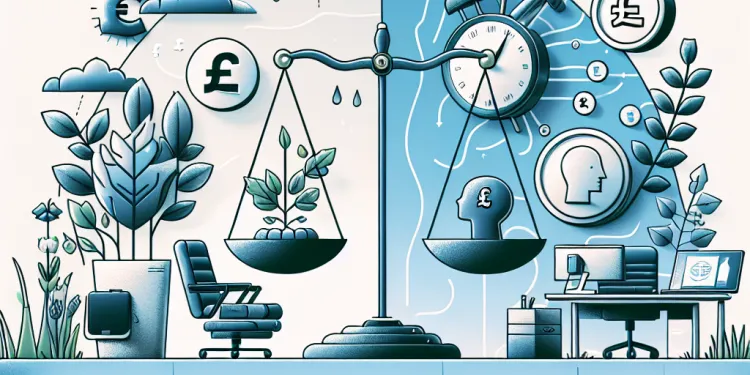
Are UK's Post-Pandemic Work Habits Harming Mental Wellbeing?
Relevance: 100%
-

Are UK's Post-Pandemic Work Habits Harming Mental Wellbeing?
Relevance: 99%
-
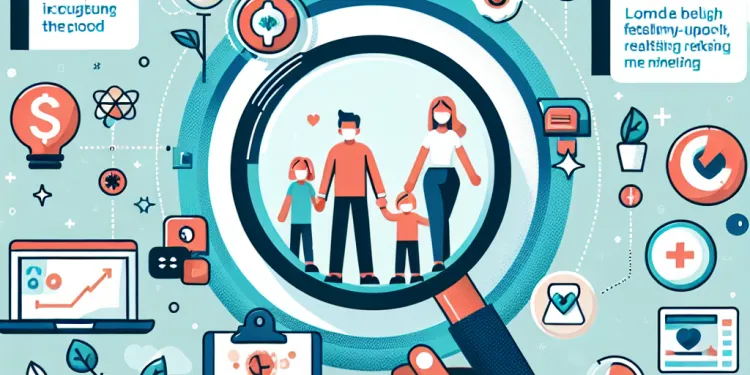
Healthy Family Lifestyle Tips Post-Pandemic
Relevance: 42%
-

Walking to Work: A Simple Habit That Could Transform Your Lifestyle
Relevance: 37%
-
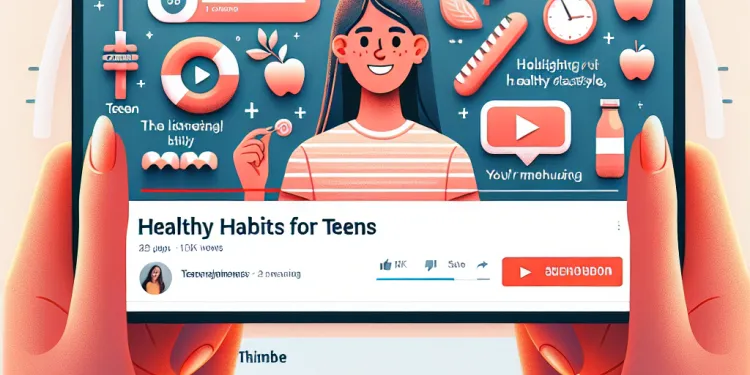
Healthy Habits for Teens
Relevance: 32%
-

Study Finds Alarming Increase in Childhood Obesity Rates Post-Pandemic
Relevance: 31%
-

How does walking to work impact mental health?
Relevance: 29%
-

Essential Tips for Mental Health and Well-Being Amidst Rising Living Costs
Relevance: 28%
-

NHS Launches Digital Platform to Support Mental Wellbeing
Relevance: 26%
-

How Rising Living Costs Are Impacting Family Wellbeing
Relevance: 25%
-
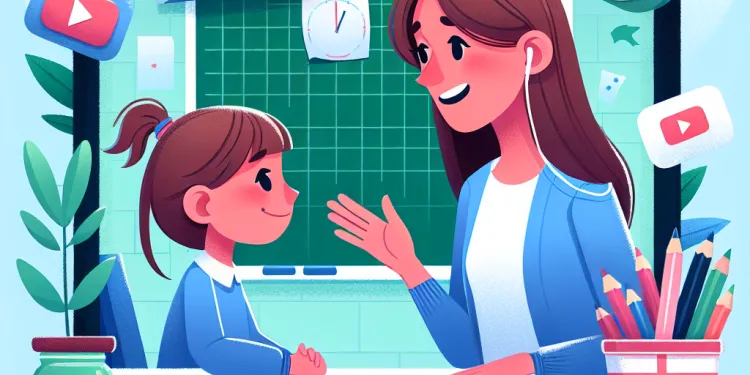
Understanding Mental Health in Children
Relevance: 23%
-

Mental Health Support Resources in the UK
Relevance: 23%
-
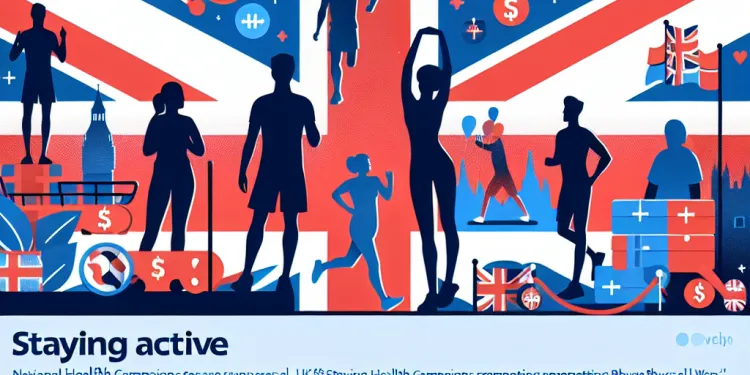
Staying Active: National Health Campaigns Promoting Physical Well-being
Relevance: 23%
-
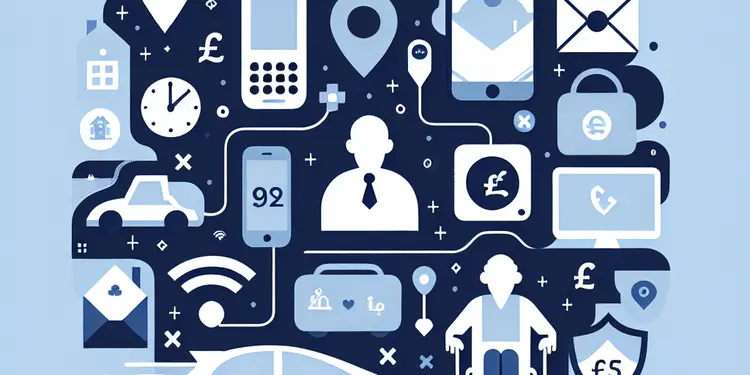
How can technology be used to monitor the driving habits of seniors?
Relevance: 22%
-

Mental Health Support for Families - Latest Resources and Guidance
Relevance: 21%
-
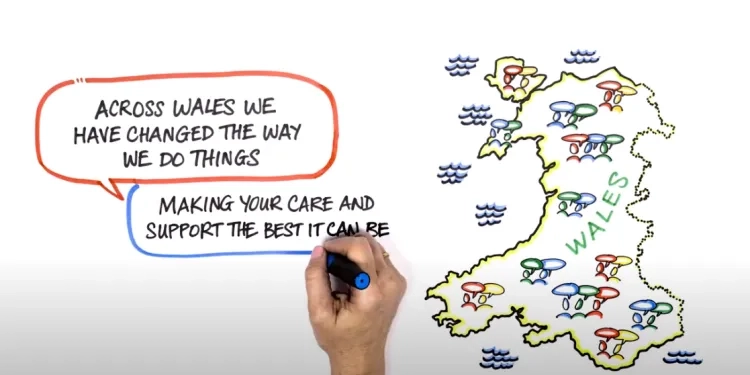
Social Services and Well-being (Wales) Act: Assessments
Relevance: 21%
-

Mental Health Resources for Families
Relevance: 21%
-

Mental Health Support for Families: Resources and Helplines
Relevance: 21%
-

Can primary care support workers access mental health support?
Relevance: 21%
-

Mental Health Support Resources for Families
Relevance: 21%
-

Navigating Mental Health Services for Children and Adolescents
Relevance: 21%
-

Tackling Youth Mental Health: Community Initiatives and Solutions
Relevance: 21%
-

Mental Health Impact of Cost of Living Crisis and Support Resources
Relevance: 21%
-

Mental Health Support Services in the UK
Relevance: 20%
-
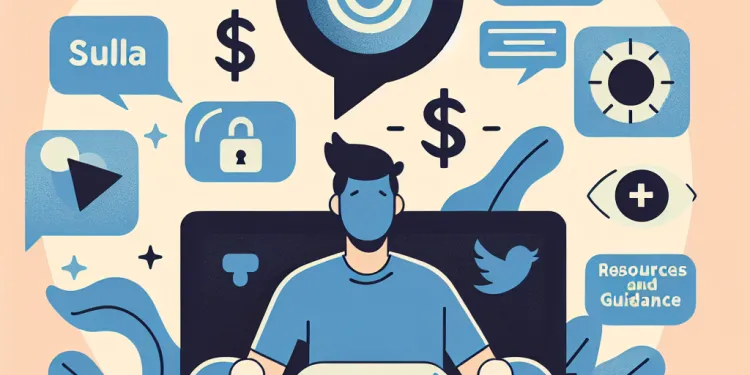
Mental Health Support for Families: Resources and Guidance
Relevance: 20%
-

Can relationship problems be resolved to improve mental health?
Relevance: 20%
-

What mental health resources are available for seniors?
Relevance: 20%
-

How can I stay motivated to walk to work regularly?
Relevance: 20%
-

Advancements in Mental Health Resources for Families
Relevance: 20%
-

Has the social media ban been successful in improving children's mental health?
Relevance: 20%
-

What are the signs that weight loss jabs are working?
Relevance: 20%
-
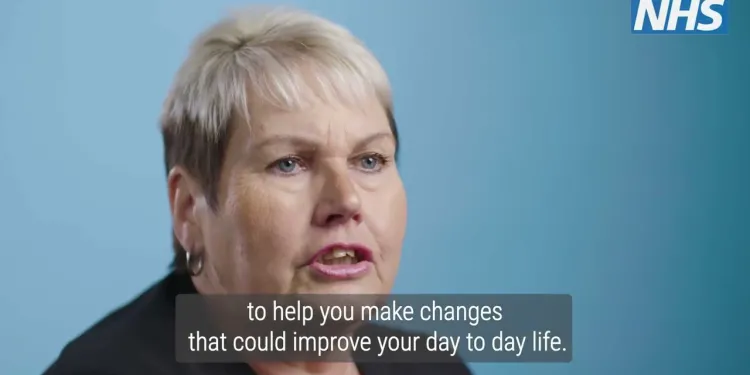
Social Prescribing Link Workers are part of new health and wellbeing services in NHS surgeries
Relevance: 19%
-

How does sugar impact mental health?
Relevance: 19%
-

Mental Health Support for Families: Resources and Strategies
Relevance: 19%
-

Can mixed exercises improve mental health?
Relevance: 19%
-

Record Number of Brits Embrace Plant-Based Diets for Wellbeing
Relevance: 19%
-

Accessing Mental Health Support Resources in the UK
Relevance: 19%
-

How do eating disorders affect mental health?
Relevance: 19%
-

New Mental Health Strategy Launched to Address Youth Anxiety Epidemic
Relevance: 19%
-

What impact can weight loss drugs have on mental health?
Relevance: 19%
Are UK's Post-Pandemic Work Habits Harming Mental Wellbeing?
Introduction
The COVID-19 pandemic has fundamentally altered work habits across the UK, with remote and hybrid work models becoming the new norm. While these changes have introduced flexibility and convenience, they have also raised concerns about their impact on mental wellbeing. This discussion examines how these post-pandemic work habits are affecting the mental health of the UK's workforce.Increased Screen Time and Digital Fatigue
One of the most significant changes in post-pandemic work habits is the increase in screen time. Remote work often necessitates prolonged use of computers and digital devices, leading to digital fatigue. Constant video meetings and the pressure to be always available online can lead to burnout, stress, and anxiety. These factors contribute negatively to mental wellbeing, emphasizing a need for balance and screen breaks.Blurred Boundaries Between Work and Personal Life
Remote and hybrid work modes often blur the lines between work and personal life. The home, once a sanctuary from professional stresses, has become a place of work and meetings. This lack of clear boundaries can lead to an 'always-on' mentality, affecting relaxation time and personal relationships. Such blurred boundaries can disrupt work-life balance, a crucial component of positive mental health.Isolation and Loneliness
While remote work offers flexibility, it can also lead to feelings of isolation and loneliness. Regular face-to-face interaction with colleagues provides not only collaboration but also emotional and social support. The absence of these interactions in remote settings can increase feelings of isolation, contributing to poor mental health outcomes. Ensuring regular social interactions, even virtually, can help mitigate these effects.Adaptation Stress
The constant changes in work patterns require continuous adaptation, which can be stressful. Employees may experience job insecurity and pressure to adapt quickly to new technologies and workflows. This stress can accumulate over time, impacting mental wellbeing. Employers should provide adequate support and training to ease this transition, fostering a supportive work culture.Conclusion
While flexible work models offer numerous advantages, it is crucial to address their potential negative impacts on mental wellbeing. By fostering a balanced approach that includes regular breaks, clear work-life boundaries, and social interaction, employers and employees can work together to support mental health. Recognizing these challenges and proactively addressing them is vital for sustaining a healthy and productive workforce in the UK.Are UK's New Work Habits Hurting Mental Health?
Introduction
The COVID-19 pandemic changed how people work in the UK. Many people now work from home or part home, part office. This gives them more freedom, but it might also affect their mental health. Let's talk about how these new work habits are making people feel.More Screen Time and Feeling Tired
Since the pandemic, people look at screens much more. They use computers and phones a lot for work, which can make them feel tired. Having many video meetings and needing to be online all the time can make people feel very tired, stressed, and worried. It's important to take breaks from screens to stay healthy.Work and Home Life Mixing Together
When people work from home, it can be hard to know when work ends and home life begins. Home used to be a place to relax, but now it's also a place for work. This can make it hard for people to relax and spend time with family. Having set times for work and home activities is important for feeling good.Feeling Alone
Working from home can sometimes make people feel alone. At the office, people talk and support each other. At home, they might miss this. Not talking to others can make people feel lonely and sad. It's good to chat with people, even online, to feel better.Stress from Changes
With work habits changing all the time, people might feel stress. They might worry about losing their job or having to learn new things quickly. This can make them feel very stressed. It's important for workplaces to help people learn and adjust to feel better.Conclusion
Working from home has good points, but can also affect mental health. Taking breaks, keeping work and home life separate, and talking with others can help people feel better. Seeing these challenges and helping each other is important for everyone’s health in the UK.Frequently Asked Questions
How have work habits in the UK changed post-pandemic?
Post-pandemic, many UK employees have adopted hybrid work models, combining remote work with office presence. This shift has blurred the lines between work and personal life.
Are the new work habits impacting mental wellbeing?
Yes, the new work habits have been linked to increased stress and anxiety, as the boundaries between personal and professional life become less distinct.
Why is remote work challenging for mental health?
Remote work can lead to isolation, longer working hours, and difficulty disconnecting from work responsibilities, all of which can negatively impact mental health.
How does hybrid work affect social interactions?
Hybrid work can reduce face-to-face interactions, which are crucial for building workplace relationships and can contribute to feelings of loneliness.
What role does job insecurity play in mental wellbeing?
Job insecurity, heightened by the pandemic, can increase stress and anxiety levels, particularly if employees are concerned about the stability of their roles in a changing work environment.
How can employers support mental wellbeing post-pandemic?
Employers can support mental wellbeing by offering flexible work arrangements, providing mental health resources, and encouraging regular check-ins with teams.
What are the benefits of flexible working hours for mental health?
Flexible working hours can alleviate stress by allowing employees to balance work and personal responsibilities more effectively, leading to improved mental wellbeing.
Is the lack of a clear work-life boundary a concern?
Yes, it can lead to burnout, as employees may struggle to disconnect from work, negatively impacting mental health and overall productivity.
How does increased screen time affect employees?
Increased screen time can lead to digital fatigue, eye strain, and disrupted sleep patterns, which collectively harm mental wellbeing.
What are some signs of declining mental health in remote workers?
Signs include decreased productivity, changes in mood, withdrawal from social interactions, and difficulty concentrating.
How important is maintaining a routine for mental health?
Maintaining a daily routine can provide structure, reduce stress, and help individuals better manage their time, supporting mental stability.
Can virtual meetings contribute to stress?
Yes, back-to-back virtual meetings, often referred to as 'Zoom fatigue,' can be exhausting and contribute to stress and burnout.
What strategies can employees use to improve work-life balance?
Employees can set aside specific work hours, create a dedicated workspace, take regular breaks, and turn off work notifications after hours.
How do commuting changes impact mental health?
While reduced commuting time can be less stressful, the time often used for commuting might have provided valuable separation between work and home life, helping to mentally prepare or unwind from work.
Are there specific demographics more affected by post-pandemic work habits?
Younger workers and those with caregiving responsibilities may be more affected, as they might struggle with workspace constraints and balancing home duties with work.
How has work in the UK changed after COVID-19?
After the COVID-19 pandemic, many people in the UK work differently. Some work from home more. Others go to the office less often. There are new ways of doing work now.
- Working from Home: Some people now work from home instead of going to the office.
- Flexible Hours: Some jobs let people choose when to start and finish work.
- Online Meetings: Many meetings happen on the computer using video calls.
If reading is hard, try these tools:
- Text-to-Speech: Use a tool that reads text out loud.
- Picture Support: Find pictures that help explain the words.
- Simple Words: Look for a dictionary with easy words.
After the pandemic, many people in the UK are working both from home and in the office. This is called hybrid work. It has made the line between work time and personal time less clear.
Do the new ways of working affect how we feel?
Yes, the new way we work is causing more stress and worry. It is harder to keep work and home life separate.
Why is working from home hard for feelings?
Working from home can make people feel sad or stressed. It is hard because:
- You might feel lonely without your friends.
- It is hard to stop working and relax.
- There can be too many things happening at home.
- You might miss seeing people face to face.
Here are some ways to feel better:
- Talk to friends or family on the phone or video call.
- Take breaks and go for a walk.
- Set a time to start and stop working.
- Do fun things after work.
Working from home can make people feel alone. It can also mean working longer hours and have trouble stopping work. All these things can be bad for feeling happy and healthy.
How does working from home and office change how we talk to each other?
When people work sometimes at home and sometimes at the office, it can change how they talk and spend time with others. It is important to think about how this new way of working might make us feel.
Here are some ideas to help:
- Video Calls: Use video calls to see your friends and workmates. It helps to see faces and feel close.
- Messages: Send messages to keep in touch. A quick "hello" can be nice!
- Regular Meetings: Plan regular times to meet, either online or in person, so everyone can share and feel included.
- Online Activities: Play games or do fun things online together. It can make you feel like a team.
It's okay to miss seeing people in person. Try different ways to stay connected and find what works best for you.
When people work partly from home and partly at the office, it can mean less time talking in person. Talking in person is very important for making friends at work. Without enough face-to-face time, people might feel lonely.
How does worrying about losing a job affect how we feel?
When people worry about losing their jobs, it can make them feel upset or stressed. This is called job insecurity.
Feeling like this can make it hard to be happy or feel good. It can even make people feel sick or tired.
If you feel worried about losing your job, talking to someone you trust can help. They might have ideas to make you feel better.
Using calming techniques like deep breathing or making a list of what you can do next can also help you feel more in control.
The pandemic has made some people worried about losing their jobs. This can make them feel stressed and anxious. They might be scared because the way we work is changing, and they can't be sure about their jobs.
Recommended tools and techniques:
- Talk to someone you trust about your worries.
- Make time to relax each day.
- Use deep breathing to calm your mind.
- Write down your feelings in a journal.
How can bosses help with mental wellbeing after the pandemic?
Bosses can do things to help workers feel better after the pandemic. Here are some ideas:
- Talk to workers and listen to their worries.
- Let people take breaks when they need to.
- Help workers work from home if they need to.
- Give everyone information on being healthy and happy.
- Encourage workers to talk to each other.
- Offer support, like talking to a counselor.
Tools like reminders and planning apps can help workers stay organized. Breathing exercises and short walks can also help people feel calm.
Bosses can help people feel better by letting them work at different times, giving them things to help with feelings, and talking to their teams often.
How do flexible work hours help mental health?
Flexible work hours mean you can choose when you work. This can help you:
- Feel less stressed
- Be happier
- Have more time for things you like
- Rest when you need to
Using a calendar or planner can help you keep track of your flexible hours.
Being able to choose when you work helps you feel less stressed. It lets you take care of your job and your home life better. This makes you feel happier and more relaxed.
Is it a problem if work and home life mix?
Yes, working too much can make people very tired and stressed. It's hard to stop thinking about work, and this can make people feel unhappy and not work well.
What happens to workers when they look at screens more?
Looking at screens too much can make you feel very tired. It can also hurt your eyes and make it hard to sleep well. This can make you feel upset or worried.
How can you tell if remote workers are feeling sad or stressed?
Remote workers are people who work from home. Sometimes, they might feel sad or stressed. Here are some signs that might show they need help:
- Feeling tired all the time.
- Not enjoying things they used to like.
- Getting angry or upset easily.
- Having problems with sleep.
- Not wanting to talk to friends or family.
If you notice these signs, it is a good idea to talk to someone you trust. You can also try using tools that help with stress, like relaxing music or breathing exercises.
Some signs are:
- Getting less work done.
- Feeling sad or angry.
- Not wanting to be around people.
- Finding it hard to focus.
Here are ways to help:
- Take short breaks often.
- Talk to friends or family.
- Try breathing exercises.
- Make a list of what to do.
Why is having a routine good for your mind?
Having a routine means doing things in the same way each day. This can help keep your mind happy and healthy. When you know what to do next, you can feel calm and less stressed. It can also help you sleep better and get things done.
Here are some tools that can help:
- Use a calendar to write down your daily activities.
- Set alarms or reminders to keep you on track.
- Ask a friend or family member to help you keep your routine.
Having a daily routine helps you stay organized. It can make you feel less worried. It also helps you use your time better and feel calm.
Do online meetings sometimes make us feel worried or stressed?
Yes, having video meetings one after the other, sometimes called 'Zoom fatigue,' can make you very tired. It can also make you feel stressed and worn out.
How can workers have a good balance between work and free time?
Here are some tips:
- Make a daily plan to know what to do at work and at home.
- Take short breaks to rest during the day.
- Say "no" if you have too much work.
- Ask for help if you need it.
- Use tools like a calendar to keep track of tasks.
Remember, it's important to have time for fun and family too!
Workers can pick special times to work. They should have a place just for work. They need to take breaks often. After work, they should turn off work messages on their phone or computer.
How does changing how you get to work affect your feelings?
When people change how they travel to work or school, it can change how they feel. If the new way of traveling takes longer or is harder, it might make someone feel worried or sad. But if the new way is better, like walking or cycling, it might make someone feel happy or less stressed.
Here are some tips to help:
- Plan your trip ahead of time to avoid stress.
- Listen to music or a podcast to make the journey fun.
- Try to travel the same way each day to get used to it.
- If you feel very sad or stressed, talk to someone who can help.
Having less time to travel to work can be nice and make us feel less stressed. But, the time we usually spend going to and from work can help us switch between work and home. It can help us get ready for work or relax after work.
Do some groups of people have more changes in work habits after the pandemic?
Here is how you can understand this question:
- We are asking if some people have had big changes in the way they work after the pandemic.
- This could be people of certain ages, genders, or who live in certain places.
To help understand:
- Think about how work has changed for people you know.
- Ask someone to explain this if it still seems tricky.
- Use pictures or drawings to see what has changed in work habits.
Younger workers and people who take care of others might find it harder. They could have trouble finding space to work and managing their home and work tasks.
Useful Links
This website offers general information and is not a substitute for professional advice.
Always seek guidance from qualified professionals.
If you have any medical concerns or need urgent help, contact a healthcare professional or emergency services immediately.
- Ergsy carfully checks the information in the videos we provide here.
- Videos shown by Youtube after a video has completed, have NOT been reviewed by ERGSY.
- To view, click the arrow in centre of video.
- Most of the videos you find here will have subtitles and/or closed captions available.
- You may need to turn these on, and choose your preferred language.
- Go to the video you'd like to watch.
- If closed captions (CC) are available, settings will be visible on the bottom right of the video player.
- To turn on Captions, click settings .
- To turn off Captions, click settings again.
More Items From Ergsy search
-

Are UK's Post-Pandemic Work Habits Harming Mental Wellbeing?
Relevance: 100%
-

Are UK's Post-Pandemic Work Habits Harming Mental Wellbeing?
Relevance: 99%
-

Healthy Family Lifestyle Tips Post-Pandemic
Relevance: 42%
-

Walking to Work: A Simple Habit That Could Transform Your Lifestyle
Relevance: 37%
-

Healthy Habits for Teens
Relevance: 32%
-

Study Finds Alarming Increase in Childhood Obesity Rates Post-Pandemic
Relevance: 31%
-

How does walking to work impact mental health?
Relevance: 29%
-

Essential Tips for Mental Health and Well-Being Amidst Rising Living Costs
Relevance: 28%
-

NHS Launches Digital Platform to Support Mental Wellbeing
Relevance: 26%
-

How Rising Living Costs Are Impacting Family Wellbeing
Relevance: 25%
-

Understanding Mental Health in Children
Relevance: 23%
-

Mental Health Support Resources in the UK
Relevance: 23%
-

Staying Active: National Health Campaigns Promoting Physical Well-being
Relevance: 23%
-

How can technology be used to monitor the driving habits of seniors?
Relevance: 22%
-

Mental Health Support for Families - Latest Resources and Guidance
Relevance: 21%
-

Social Services and Well-being (Wales) Act: Assessments
Relevance: 21%
-

Mental Health Resources for Families
Relevance: 21%
-

Mental Health Support for Families: Resources and Helplines
Relevance: 21%
-

Can primary care support workers access mental health support?
Relevance: 21%
-

Mental Health Support Resources for Families
Relevance: 21%
-

Navigating Mental Health Services for Children and Adolescents
Relevance: 21%
-

Tackling Youth Mental Health: Community Initiatives and Solutions
Relevance: 21%
-

Mental Health Impact of Cost of Living Crisis and Support Resources
Relevance: 21%
-

Mental Health Support Services in the UK
Relevance: 20%
-

Mental Health Support for Families: Resources and Guidance
Relevance: 20%
-

Can relationship problems be resolved to improve mental health?
Relevance: 20%
-

What mental health resources are available for seniors?
Relevance: 20%
-

How can I stay motivated to walk to work regularly?
Relevance: 20%
-

Advancements in Mental Health Resources for Families
Relevance: 20%
-

Has the social media ban been successful in improving children's mental health?
Relevance: 20%
-

What are the signs that weight loss jabs are working?
Relevance: 20%
-

Social Prescribing Link Workers are part of new health and wellbeing services in NHS surgeries
Relevance: 19%
-

How does sugar impact mental health?
Relevance: 19%
-

Mental Health Support for Families: Resources and Strategies
Relevance: 19%
-

Can mixed exercises improve mental health?
Relevance: 19%
-

Record Number of Brits Embrace Plant-Based Diets for Wellbeing
Relevance: 19%
-

Accessing Mental Health Support Resources in the UK
Relevance: 19%
-

How do eating disorders affect mental health?
Relevance: 19%
-

New Mental Health Strategy Launched to Address Youth Anxiety Epidemic
Relevance: 19%
-

What impact can weight loss drugs have on mental health?
Relevance: 19%


